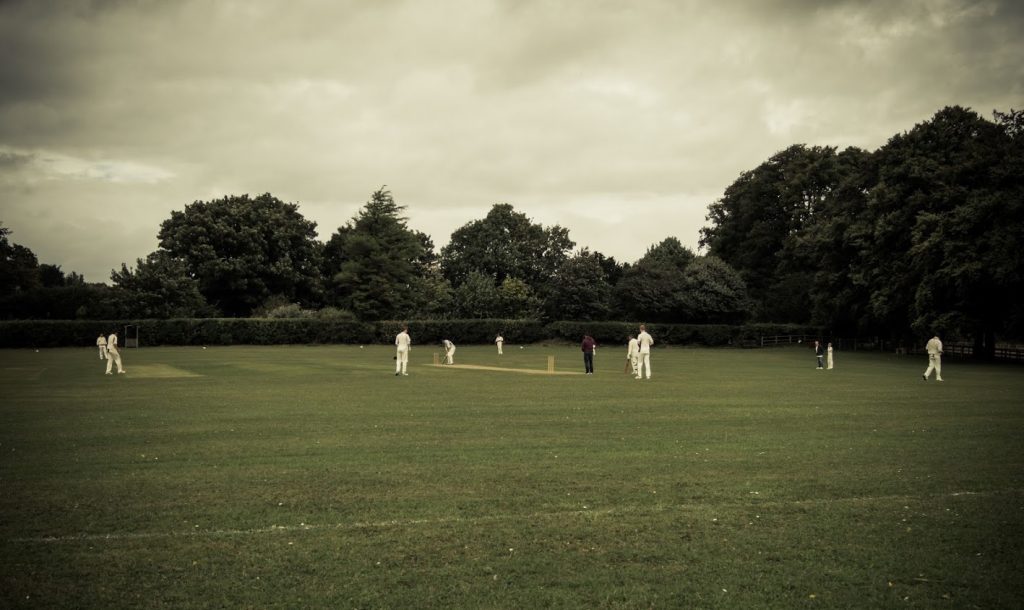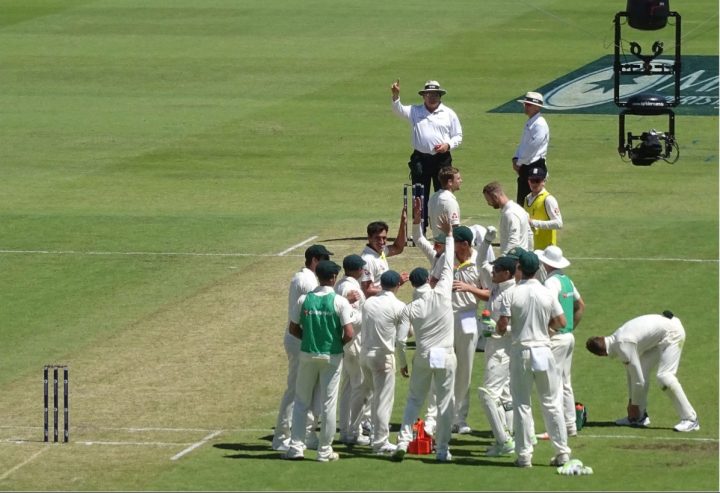Think those mollycoddled professionals have it tough? Think again. Today John Bartholomew reveals that life as an amateur club skipper is infinitely more challenging…
This is not another rant about the shortcomings of Joe Root and most of his predecessors. It is an in-depth (well just over 1,000 words to be precise) study of the management, selection and tactical dilemmas and solutions faced by real cricket captains – in this case the captain of the Sunday 2nd XI, which was the peak of my own cricketing career.
The essential skills are as follows:
It is a management role first and foremost. The first rule of management is to get the tea money off everybody before tea. The devoted wives who have worked in the kitchen while we are out sunning ourselves do not take it kindly if their costs are not covered, and I learned the hard way that it is the captain who has to cover any shortfall. Personally, I think it is worthwhile having a vice captain who is responsible for all the money related tasks, which include match fees and jug money as well. Having a vice captain does have its disadvantages as they seem to want to interfere with your tactics, but a bit of a trade-off is needed here. Since your team does not have a travelling umpire, the task of bullying waiting (or previously dismissed) batsmen into standing for a few overs is another one that can very appropriately be delegated to the vice captain.
Then there is selection. The time honoured selection system is to ask everyone if they are available next week, and then to phone round with ever increasing desperation as one by one they ring with their apologies, including the inevitable Saturday evening defection which leaves you no option but to co-opt the twelve-year-old next door – a solution with some merit as he is better than at least a third of the regulars. This would be all just about manageable except that the first eleven skipper considers that he has first dibs on your best players if he suffers midweek cry-offs. Best not to answer the phone if his name appears on the screen.
Turning up with only nine players still happens. It is an embarrassment, but your sporting opposition will usually lend you substitute fielders who are very pleased to get out of umpiring or scoring, and who occasionally hold spectacular catches that no-one in your side could have managed. Now and then, opponents are in the same position, and I recall least two occasions when the opposition failed to appear altogether, putting my management skills to the ultimate test as I devised an instant single-wicket competition which everyone agreed was much more fun than a proper match would have been except that those who had been knocked out early on, seemed to disappear during the later stages of the contest, leaving the fielders a bit thin on the ground.

Once the game has started, it is time to turn your attention to winning it, or, in our case, not losing too soon. This starts with the toss. There is absolutely only one decision here, and that is to field first as you know only too well that your batting vulnerabilities are likely to result in an England style collapse sooner rather than later. It is only fair to the opposition to extend the match by giving them two or three hours batting so that the game proceeds beyond tea. Just occasionally, when a whole carload of five of your players has taken a wrong turning and phones up from twenty miles away, there is no option but to bat, and hang on grimly until the car finally arrives.
Of course, it is captaincy in the field that really tests your tactical mettle, and here there is a lot to think about. The first decision is easy. If not snaffled for the first team, Martin is the one bowler who can keep going all the afternoon with gentle but accurate medium pace which rarely takes a wicket, but can, with a seven-two field and a steady fifth stump line, slow the scoring to an acceptable rate. At the other end you have a string of tearaways who will sprinkle the ball in all directions, feel entitled to a spell of at least four overs, and are deeply offended to be taken off. Then, you have a couple of very slow spinners (including myself – straight breaks) to bowl ‘tempters’ when all else has failed. In between juggling this attack, you have the setting of the field to think about with five players to try to hide, and your one good fielder at cover point – or cow corner when the tempters are bowling. With your current wicket keeper, an essential position is very fine leg – effectively long stop. For the sake of appearances, you do set a couple of slips for the first few overs, but the prospect of them intercepting anything is not too realistic as they are the ones who can’t run or throw and have begged to be placed near to the bat.
At last, it is batting time, time to set and announce the batting order. Martin, the fellow who has just bowled twenty two overs without a break, is also the one most likely to score a few runs, so he is always pencilled in at number four. Fortunately, everybody understands this. However, there is this odd convention in first class cricket that the batting order remains much the same week in week out. I have never comprehended this. Surely they realise that if Jim doesn’t get a decent bat this week he won’t be coming again, and he was number ten last week, so he’d better open. Bill, Peter and Mike all got to bowl a few overs so they can be numbers nine, ten and eleven, even though Bill scored 37 last week. You quietly ask the first four to pad up, then discreetly hand the list to the scorer so that the rest can find out for themselves. Meanwhile you are off out with Jim to open – well, what’s the use of power if you don’t abuse it? – your primary objective being to remain out there at least until the grumbling about the batting order has died down.
After the match, it is your role to be gracious in defeat, one that I was very practised in, as indeed is Joe Root, a model in this respect. Many is the evening when over a jug, we have taken the positives and looked forward to putting the lessons learned into practice in the next game, if we can raise a team.
Ben, Stuart, Jos, Sam, or whoever – I hope that helps.
John Bartholomew









I liked this. 😀😅
John
Brilliant. Although I was never a captain, I was one of those who turned up week in, week out and didn’t care less where I batted or if I got a bowl (leg breaks which were ALL googlies). However, I enjoyed fielding and the camaraderie of being with like minded people.
I don’t envy any captain.
“the one bowler who can keep going all the afternoon with gentle but accurate medium pace which rarely takes a wicket, but can, with a seven-two field and a steady fifth stump line, slow the scoring to an acceptable rate. ”
If only you’d come up with a clever-sounding name for this like “bowling dry” you could have been made England captain!
Assuming a public school education and “the right sort of family” of course…
Absolutely spot-on.
Very good ! Reminds of the play ‘Outside Edge’ !
I was scorer for 10 years for the village team at which my dad played, so many of these scenarios cropped up during that time – particularly the ‘borrowing fielders from the opposition’.
I remember scoring one match away from home which was played on a pitch resembling corrugated iron. After being bowled out for 16, my dad as the opening bowler (medium pace, with a touch of swing) was fuming. His third ball was dug in a bit short, reared off a length and sent the opening batter to retire hurt having hit him in the chops. Dad went on to take two or three wickets before the winning runs were taken from a scamper following a dropped catch.
With the match having started at 2pm, and including the obligatory 10 mins between innings, the match was over and we were eating tea at 3.55pm.
Proper village!
You should apply for the England captaincy John! Excellent piece.
Anyone trying manage anything without the protection of contracts to rein in the uncooperative has my sympathy. I have worked in many a charity shop and managing volunteers is a much more labour intensive exercise than contracted employees. You have to smooth over many more emotional cracks.
Likewise like most on this blog I have played in and occasionally captained amateur cricketers who are essentially volunteers and you have to deal with so much more baggage that wouldn’t be tolerated in the professional game. Just getting X1 onto the field can be your biggest challenge and don’t even talk to me about batting orders, bowling changes, field placings and umpiring.
Many think the play ‘Outside Edge’ is OTT, not in my humble experience it Isn’t. You have to smooth everything over after every game to ensure people will turn out again next time, especially if you don’t win many games.
Grimly wonderful stuff, John. I used to captain and bat at number three for a wandering side of, shall we say, limited ability with the bat. I’d heard rumbles questioning my right to hold my customary position at first drop, so I decided to slip down the order for a match against our keenest rivals, on the Kent-Sussex border. I went to one player after another, asking each of them where they’d like to bat. To my astonishment, every one of them wanted a position in the top six: “never been in better form, skip” … “how do you expect me to score runs down the order?” blah blah blah. By the time they’d all had their say, I inked myself in at No 11, so as not to hurt anyone’s feelings, given their claimed abilities that had hitherto escaped my notice. BIG MISTAKE. The normal No 9 who’d talked me into letting him open the innings hit the first ball of the match for six, but was dismissed before the over was out. Several others didn’t last as long as that. After less than an hour, I found myself walking out to bat at 35 for nine. The ninth wicket had fallen off the last ball of an over, so I was the non-striker for the next over. My partner, who’d come in at No 6 and had notched up three or four singles, assured me during our mid-wicket chat: “We can sort this, captain. Let’s target 100!” Two balls later, he chipped a simple catch to mid-wicket. All out 35. Captain undefeated on nought, never having faced a ball. The game was over less than ten overs later. The wives and girlfriends hadn’t even had time to heat the tea urn. Moral of the story: if your captaining at this lowly level, decide on your batting order when you establish who’s actually turned up, and then stick to your guns, without consulting another soul on the matter. Happy days.
Ha ha! Great story Atnaw. Was the club on the Kent / Sussex border Tunbridge Wells Borderers?
Just out of interest, when was the last time anyone saw a catching cradle as in the photograph? They used to be a standard part of practice when I was at school but seem to have gone the way of so many things from that era !
Farcical attempt to get Buttler back in the Test team and into the captaincy:
https://www.theguardian.com/sport/2022/apr/20/why-studying-england-winloss-ratio-can-bring-selectors-some-clarity-spin-cricket
Bring back Buttler instead of Foakes but give the gloves to Bairstow? So play Jos as a specialist batsman. Erm, no thanks!
Missed out the meeting at the masonic lodge!
Captains who were freemasons in the public record: Douglas Jardine, Len Hutton, Don Bradman, Bob Simpson, Frank Worrall, Clive Lloyd, the Nawab of Pataudi jr….
The tip of a much larger iceberg, I would suggest.
Brings back memories or should I say nightmares…. I have had half the team turn up still hungover from Saturday night parties and falling asleep in the field…. 😃😃😃
I captained a fairly casual senior game once when I was 17. The only thing that worked out how I envisaged was the batting order in which I was no 1. We were bowled out for 120, myself the last wicket for 65, and managed just 2 wickets, both taken by myself… I don’t fancy captaining again, but would have liked to hang on to the opening bat spot!
Thanks John, so true, but this is the cricket that I love.
whats the ground/house in the main photo?
Sounds like friendly cricket to me. League cricket across the country is a hard game. No money for jugs after the game mate. That is a tour thing. On a Saturday you have to got be prepared to take some hard cricket – batting, bowling or fielding. Neutral umpires that are paid a lot of money for standing at least 6 hours and more and they deal with any disagreements. A bowler will think nothing of hitting you in the heart and then walking up to pick the ball and just look at you. He doesn’t say a word and then he hits you on the heart again. I have had a few bruises then after the game you have a pint with him. Proper cricket.
Media hinting that Captain Stokes is a done deal and that it only remains for an announcement.
Most entertaining!
Absolutely captaincy is an art and it’s not possible to be a good captain for everyone. There are long list of top or best players who was not good captain or their team performance was not well in their captaincy.
Latest news is that Ben Stokes has just been appointed the new England captain. Whilst there wasn’t any real alternative (because no one else is good enough to command an automatic place), the history (Botham, Flintoff) isn’t encouraging.
I hope the ECB knows what it’s doing, though I have little confidence that it does.
An online cricket ID is an identification number that allows you to access online cricket resources.